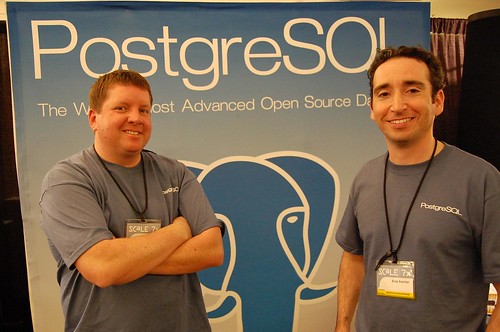
I’ve been at Grace Hopper Celebration of Women in Computing for the past two days – soaking in the presence of over 2000 women in computing at a sprawling conference here in Atlanta.
The interesting thing about this conference is how much the same it feels to me as any other large conference I attend, and a couple small ways that it is very different. I realized while I was here how I have spent the last few years surrounding myself with accomplished, amazing women like Jen Redman, Leslie Hawthorn, Claire McCabe and Sarah Sharp. What’s funny is that we’re connected by Portland (although Claire is down in Oakland… for now…), and we’re all at Grace Hopper this week. They, among many others, made me feel right at home.
I feel the dislocation of being at a conference comprised 95% (or more) of women. There’s an odd politeness that I’m not used to. There are a lot of people who are in academia or industry who wear suits and use words like ‘leverage’ without irony. There were tons of students – over 900 of them, and an incredible job fair. And I was shocked at the number of people who asked me: What exactly is free and open source software?
As congratulatory as those of us who are “in” the free software world about having essentially won out over proprietary software, there is a huge, mainstream portion of the computing world who are not aware. I’m not saying that a person needs to understand the minutia of license differences, or have even read one. But wow, there is an incredible missed opportunity when a computer science student can graduate without knowing what open source even *is*.
So, congratulations to the women who put the first ever Open Source Track at Grace Hopper together: Jen Redman, Cat Allman, Sandra Covington, Sara Ford, Jenny Han Donnelly, Leslie Hawthorn, Avni Khatri, Stormy Peters, Hilary Pike, and Natalia Vinnik. I was very happy to participate in the “getting started in open source” panel. And many thanks to the NSA for sponsoring the hackathon with Sahana, a very worthy project, and one that I hope is infused with new excitement and contribution from the 200 people who signed up to participate. I hear that we’ll be having a hackathon again next year in Portland — when Grace Hopper comes to our very own city!









